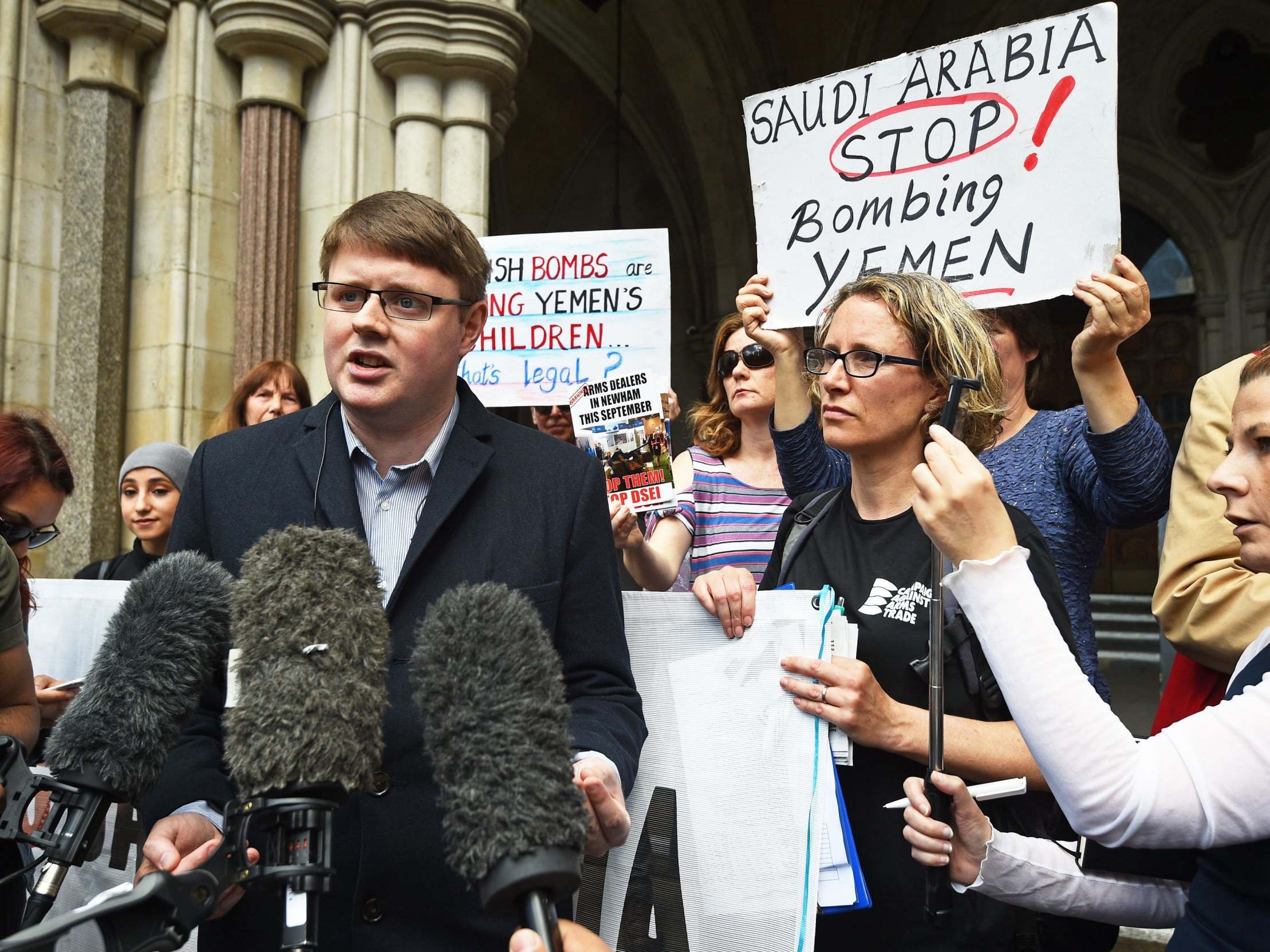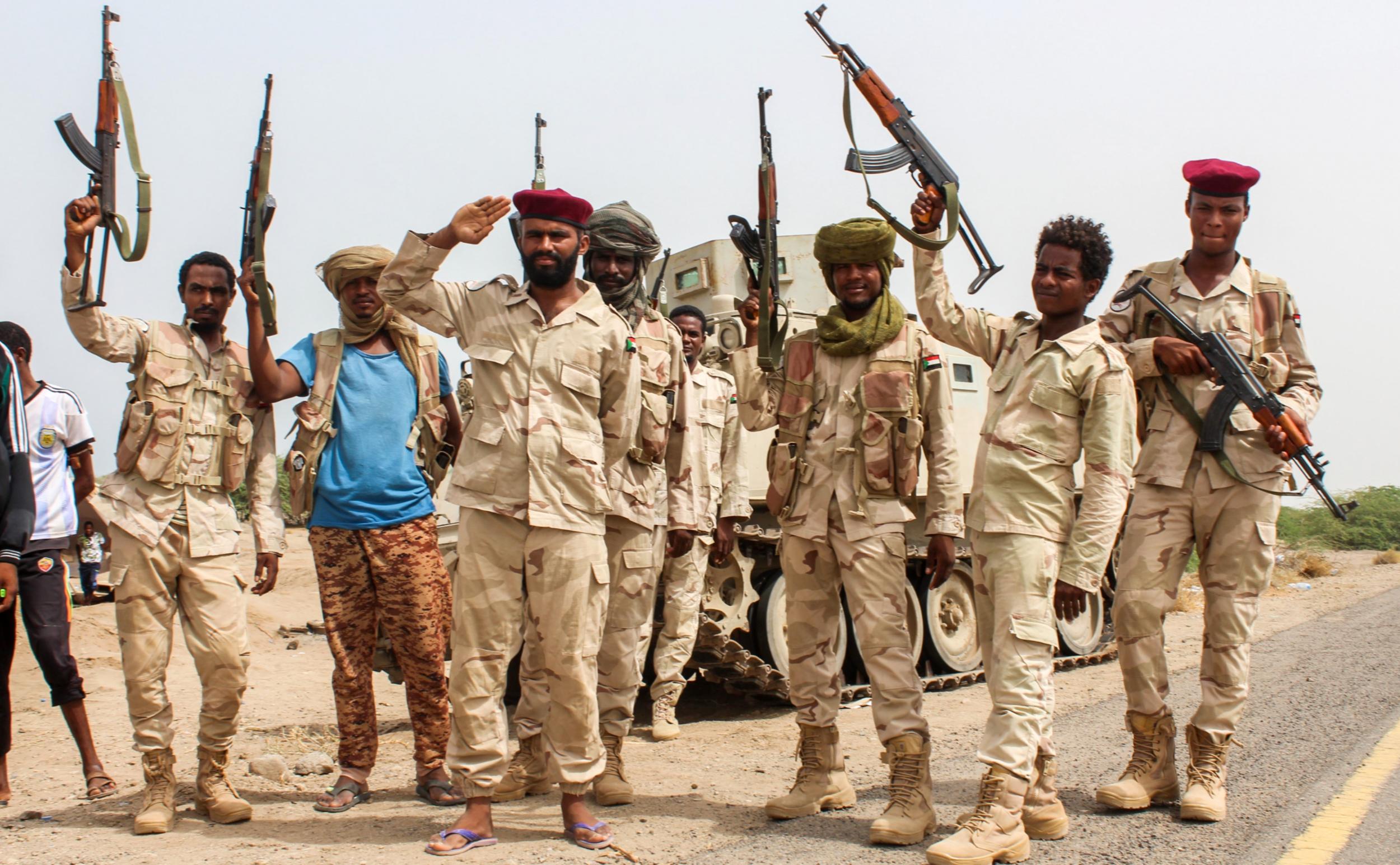UK arms sales to Saudi-led coalition up by almost 50 per cent, despite arms trade treaty
Rise in weapons sold to alliance fighting in Yemen ‘should be a stain on our conscience’, says Oxfam
Your support helps us to tell the story
From reproductive rights to climate change to Big Tech, The Independent is on the ground when the story is developing. Whether it's investigating the financials of Elon Musk's pro-Trump PAC or producing our latest documentary, 'The A Word', which shines a light on the American women fighting for reproductive rights, we know how important it is to parse out the facts from the messaging.
At such a critical moment in US history, we need reporters on the ground. Your donation allows us to keep sending journalists to speak to both sides of the story.
The Independent is trusted by Americans across the entire political spectrum. And unlike many other quality news outlets, we choose not to lock Americans out of our reporting and analysis with paywalls. We believe quality journalism should be available to everyone, paid for by those who can afford it.
Your support makes all the difference.The value of UK arms sold to a Saudi-led military coalition increased by 45 per cent over the past five years – despite the introduction of an international treaty to limit the sale of weapons, research has revealed.
Successive British governments had pushed for the Arms Trade Treaty (ATT), which came into force at the end of 2014, to better regulate the global arms trade.
Yet since January 2015, £6.4bn worth of UK arms have been sold to Saudi Arabia, the United Arab Emirates and their coalition partners fighting in Yemen, according to Oxfam.
The total compares to £4.4bn worth of UK weapons sales approved to the same eight countries in the five years up to December 2014.
“This rise in arms sales should be a stain on our conscience,” said Ruth Tanner, Oxfam’s head of humanitarian campaigns. “The Yemenis who’ve had to flee their homes, go without food and clean water, and endure outbreaks of disease need an end to this war and a chance to rebuild their lives.”
The Saudi-led coalition has been involved in the Yemeni civil war – in which more than 12,000 civilians are believed to have been killed – for all but three months since the beginning of 2015.
In June 2019, the UK government suspended arms to Saudi Arabia and its partners after the Court of Appeal found it had approved the export of weapons without assessing whether the Saudi-led coalition had broken international law.
Judges found the decision to continue selling arms for use in the Yemeni war was “irrational and therefore unlawful”.
But the government has been given permission to appeal the June 2019 decision. Although no date has yet been set, the case is expected to be heard at the Supreme Court in 2020.

Andrew Smith of Campaign Against Arms Trade (CAAT), the group which brought the case against the Department for International Trade, told The Independent: “The Saudi-led bombing of Yemen has killed tens of thousands of people and created the worst humanitarian crisis in the world, and that did nothing to stop the arms sales.”
Mr Smith added: “The UK government has played a central and complicit role in supporting and enabling the destruction.”
In September 2019, international trade secretary Liz Truss admitted her department had breached the court order banning arms sales the Saudis. Ms Truss told the House of Commons a review had unearthed several cases of licences inadvertently being approved, confessing it was “possible that more cases will come to light”.
Of the £6.4bn in UK arms sold to the Saudi-led coalition since 2015, £3bn was for aircraft, helicopters and drones and £2.6bn was for items including grenades, bombs and missiles, according to Oxfam.
In addition, the UK also granted 385 open licences to coalition members between January 2015 and December 2019, which allow the holders to export an unlimited quantity of goods.

The Arms Trade Treaty (ATT) – backed by successive UK governments under the leadership of Tony Blair, Gordon Brown and David Cameron – was intended to ensure no arms sale is allowed if there is a risk it could be used in serious violations of international law.
Ms Tanner said: “Just a few years ago, the UK government enthusiastically pursued the introduction of legislation to better control arms transfers to avoid the kind of indiscriminate violence that has been unleashed on civilians in Yemen.
“And yet now the UK is doing all it can to avoid suspending arms sales to Saudi Arabia and its coalition partners.”
Oxfam said it had to suspend operations this weekend in Al Dhale’e after its office there was hit by rocket-propelled grenades (RPGs) on Sunday, affecting aid to 15,000 people in the area. There is no suggestion British arms were used in this incident.
Mr Smith called on Boris Johnson’s government not to pursue an appeal in the Supreme Court and stop approving weapons sales to the Saudi-led coalition, but sounded downbeat on the chances on Downing Street changing course.
He said: “As foreign secretary, Boris Johnson was more than happy to support arms sales … and it seems likely that will only continue now that he is in Downing Street.”
A Government spokesperson said: “The Government takes its arms export responsibilities very seriously and issues export licences in accordance with strict licensing criteria.
“We are fully committed to complying with the 20 June Court of Appeal judgment. While we appeal the judgment, we will not grant any new licences for exports to Saudi Arabia and other coalition partners for items which might be used in the conflict in Yemen.”

Join our commenting forum
Join thought-provoking conversations, follow other Independent readers and see their replies
Comments